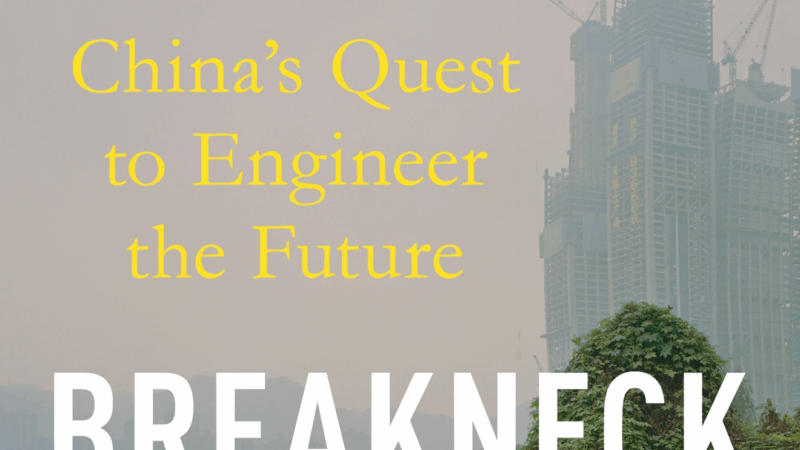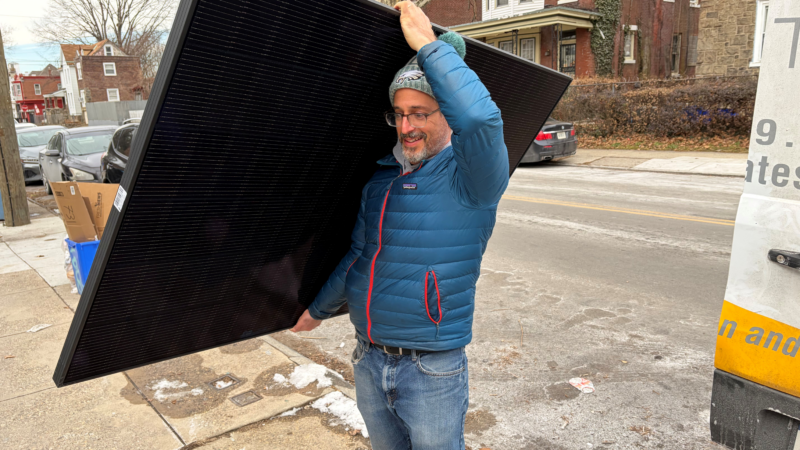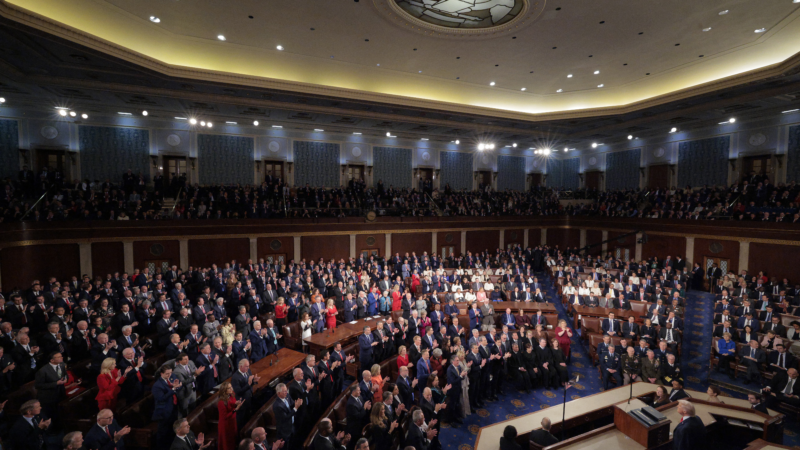Lawyers vs. engineers: Dan Wang sees U.S.-China dynamics in a new paradigm
During the three years of “zero-COVID” lockdowns, analyst Dan Wang emerged as one of the most astute observers of China’s rapidly shifting domestic dynamics. Wang witnessed how the stringent COVID measures sparked rare protests and the government’s eventual change of course in late 2022. His annual letters from China remain widely read and praised by those looking to make sense of China.
But Wang’s work goes beyond helping Western readers decode China. He wants to challenge them to think whether China’s triumphs and missteps might also offer lessons for the United States. “For decades, it was right and good for China to learn from the United States,” he tells NPR in a recent interview, “it is now time for the United States to learn a few things from China.”
It is a provocative proposition in today’s political climate in Washington. Yet, Wang insists that the U.S. and China “are fundamentally alike: restless, eager for shortcuts, ultimately driving most of the world’s big changes.” He goes on to say: “both countries are tangles of imperfection, regularly delivering — in the name of competition — self-beatings that go beyond the wildest dreams of the other.”
There are many thought-provoking observations like these in his book, Breakneck: China’s Quest to Engineer the Future. For example, Wang notices that Chinese leadership is dominated by engineers, while America’s governing class is the preserve of lawyers — with a few generals and a handful of businessmen in the mix.
This contrast, therefore, raises deeper questions in what some see as a “new cold war” between the world’s two largest economies: Are these two societies, one led by lawyers the other by engineers, destined to clash? If so, what will it look like? And if not, can they ever learn from each other’s strengths?
NPR recently spoke with Wang to learn about his thinking on the current state of play between the U.S. and China.
NPR: You use “engineering state” vs. “lawyerly society” to explain how China got ahead and America stagnated. But there was a period during China’s reform era that some pro-reform intellectuals admired the fact that America’s ruling class was proficient in procedures. Are they proven wrong?
Wang: For decades, it was right and good for China to learn from the United States. It is now time for the United States to learn a few things from China. Some of China’s most remarkable successes shine a way towards solving many of America’s present problems. China has built vast numbers of new homes, expanded the scale of its mass transit infrastructure, has become the world’s leader on the construction of clean technology deployment, and maintained a robust manufacturing base. By contrast, America looks physically stagnant, as if so many cities are only the remnants of a formerly great industrial civilization. It is fine and proper for China to celebrate many of its achievements in physical dynamism and for America to study the good parts of China’s successes.
NPR: China’s economic growth has slowed down and many young Chinese now complain about not having enough opportunities. Can China’s “engineering” ability help it regain growth?
Wang: The policies of China’s engineering state are one of the major reasons that youth unemployment has been so high today. Starting in 2020, top leader Xi Jinping decided to initiate a crackdown against some of its biggest internet platforms. At a stroke, many of China’s most vibrant companies had to lay off workers, especially those involved in online education and e-commerce. This was also a time when Xi’s insistence on “zero-COVID” strangled many service industries, especially those that catered to tourism.
The engineering state is much more attentive to advanced manufacturing than the sorts of service jobs that young Chinese are more attracted to. That’s another indication that the Chinese state is more interested in national power than the happiness of its people.

NPR: There seems to be a convergence in thinking on economic governance in America and China today, for example over industrial policy. Is this evidence that America’s lawyers are learning the lessons of Chinese engineers? More crucially, can America outcompete China with China’s ingredients for success?
Wang: Unfortunately, President Trump is learning some of the worst elements of China. Trump and Xi are visiting misfortune upon the downtrodden, expect all of their policies to be defended by vocal loyalists, and play fast and loose with economic data. But America isn’t learning some of the more useful lessons from the engineering state. China became a major manufacturing power in part by welcoming a lot of foreign engineers (especially American ones) to train up its industrial base; by contrast, ICE has deported hundreds of South Korean engineers attempting to build an advanced factory in Georgia. Trump hasn’t brought the policy discipline that Beijing has displayed in building up its own manufacturing base.
NPR: Economic stagnation, partisan politics and populism are not only an American problem. It’s also happening in many European countries. Towards the end of the book, you proposed some lessons for the U.S. Would you say, policy makers in Europe should also consider them?
Wang: There should always be greater learning across regions. I wish that Europeans could learn more from Americans and Chinese in adopting a greater degree of entrepreneurial dynamism, for it feels that it is Silicon Valley, Beijing, Hollywood and Shenzhen that will determine what people everywhere will think and what they will buy. I wish that China could be considerably more lawyerly, because the country would be stronger if the state could learn to respect individual rights. And the United States does not have to become China to build infrastructure. Countries like France, Spain and Japan are able to build plenty of mass transit, at reasonable cost, without trampling over their people.
When a horse whinnies, there’s more than meets the ear
A new study finds that horse whinnies are made of both a high and a low frequency, generated by different parts of the vocal tract. The two-tone sound may help horses convey more complex information.
Trump’s many tariff tools mean consumer prices won’t go down, analysts say
The Supreme Court struck down President Trump's signature tariffs. But the president has other tariff tools, and consumers shouldn't expect cheaper prices anytime soon, economists say.
Hundreds of American nurses choose Canada over the U.S. under Trump
More than 1,000 American nurses have successfully applied for licensure in British Columbia since April, a massive increase over prior years.
Tax credits for solar panels are available, but the catch is you can’t own them
Rooftop solar installers are steering customers toward leases instead of purchases. Federal tax credits for purchased systems have ended but are still available for leased ones.
5 takeaways from Trump’s State of the Union address
President Trump hit familiar notes on immigration and culture in his speech Tuesday night, but he largely underplayed the economic problems that voters say they are most concerned about.
China restricts exports to 40 Japanese entities with ties to military
China on Tuesday restricted exports to 40 Japanese entities it says are contributing to Japan's "remilitarization," in the latest escalation of tensions with Tokyo.







